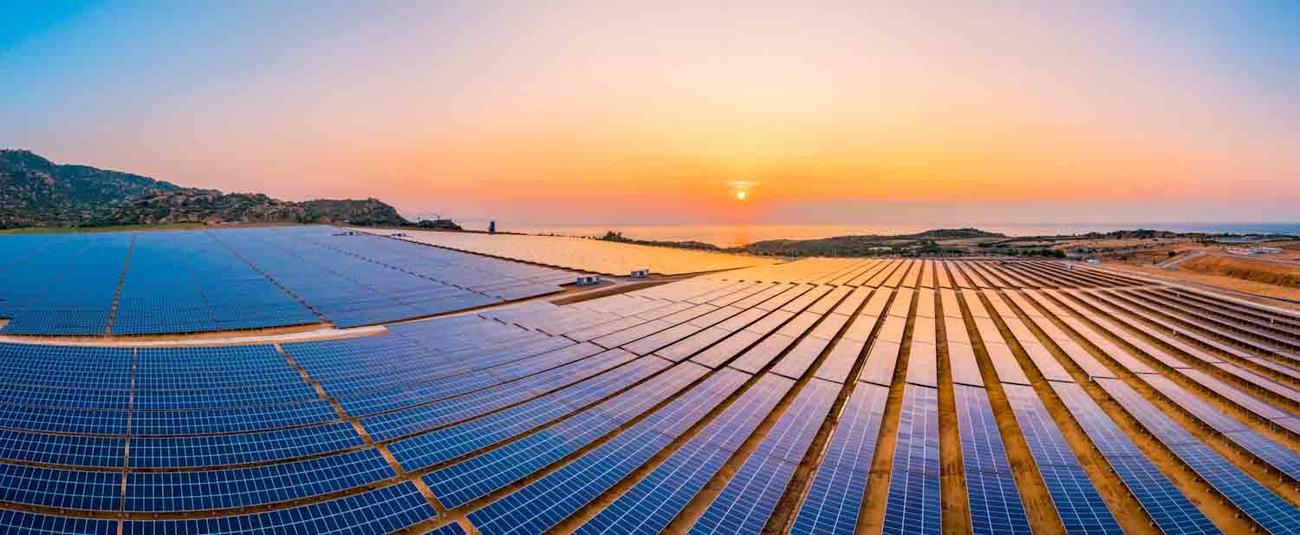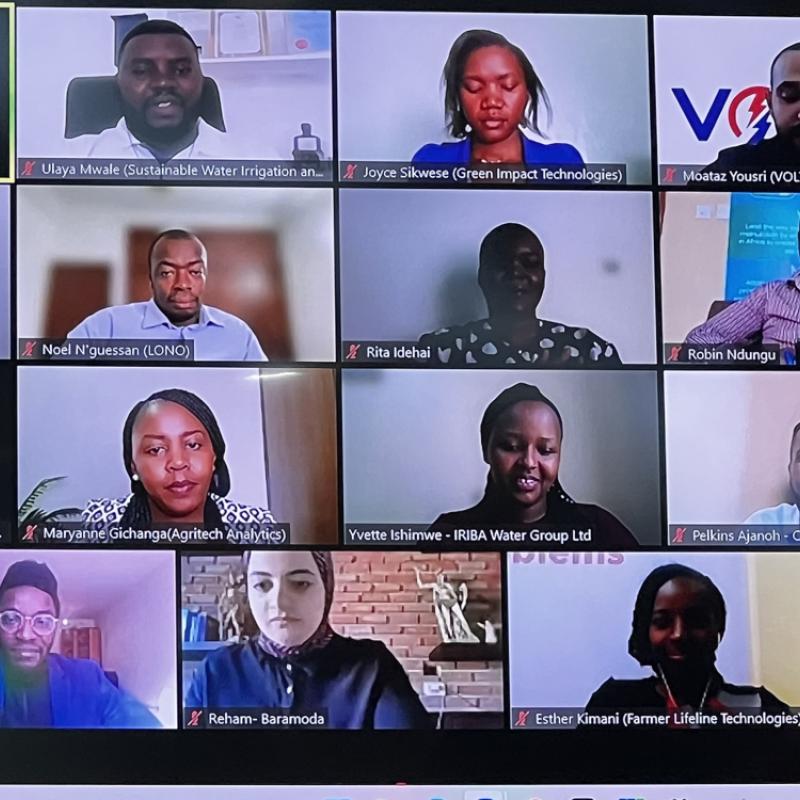
AAAP in the Media
Displaying 1 - 4 of 4
African Development Bank Group approves $379.6 million Desert to Power financing facility for the G5 Sahel countries

The Board of Directors of the African Development Bank Group has approved the Desert to Power G5 Sahel Financing Facility, covering Burkina Faso, Chad, Mali, Mauritania, and Niger. The Bank envisages to commit up to $379.6 million in financing and technical assistance for the facility over the next seven years.
The Desert to Power G5 Financing Facility aims to assist the G5 Sahel countries to adopt a low-emission power generation pathway by making use of the region’s abundant solar potential. The facility will focus on utility-scale solar generation through independent power producers and energy storage solutions. These investments will be backed by a technical assistance component to enhance implementation capacity, strengthen the enabling environment for private sector investments, and ensure gender and climate mainstreaming.
The facility is expected to result in 500 MW of additional solar generation capacity and facilitate electricity access to some 695,000 households. Over the lifespan of the project, it is expected to reduce carbon emissions by over 14.4 million tons of carbon dioxide equivalent.
The Board of the Green Climate Fund approved $150 million in concessional resources in October 2021 for the facility, which is expected to leverage around $437 million in additional financing from other development finance institutions, commercial banks and private sector developers. The Global Center on Adaptation is providing technical assistance to strengthen adaptation and resilience measures undertaken in the facility as part of the Africa Adaptation Acceleration Program in partnership with the African Development Bank.
The African Development Bank’s Vice President for Power, Energy, Climate Change and Green Growth, Dr. Kevin Kariuki said: “The innovative blended finance approach of the Desert to Power G5 Sahel Facility will de-risk, and therefore catalyze, private sector investment in solar power generation in the region. This will lead to transformational energy generation and bridge the energy access deficit in some of Africa’s most fragile countries.”
Dr. Daniel Schroth, the Bank’s Acting Director for Renewable Energy and Energy Efficiency, added: “The facility will also support the integration of larger shares of variable renewables in the region’s power systems, notably through the deployment of innovative battery storage solutions and grid investments.”
The facility will be implemented as part of the broader Desert to Power initiative, a flagship program led by the African Development Bank. The objective is to light up and power the Sahel region by adding 10 GW of solar generation capacity and providing electricity to around 250 million people in the 11 Sahelian countries by 2030.
.embed-container { position: relative; padding-bottom: 56.25%; height: 0; overflow: hidden; max-width: 100%; } .embed-container iframe, .embed-container object, .embed-container embed { position: absolute; top: 0; left: 0; width: 100%; height: 100%; }
.embed-container { position: relative; padding-bottom: 56.25%; height: 0; overflow: hidden; max-width: 100%; } .embed-container iframe, .embed-container object, .embed-container embed { position: absolute; top: 0; left: 0; width: 100%; height: 100%; }
.embed-container { position: relative; padding-bottom: 56.25%; height: 0; overflow: hidden; max-width: 100%; } .embed-container iframe, .embed-container object, .embed-container embed { position: absolute; top: 0; left: 0; width: 100%; height: 100%; }
20 young African entrepreneurs bag $100,000 each to boost their climate adaptation businesses
Digital Climate Adaptation Solutions Training – Southern Africa
Harnessing the power of technological innovations and digitalization to improve agricultural productivity and strengthen climate resilience has been recognized as one of the potential game changers to address many of pressing climate concerns and rural transformation challenges facing Africa today.
Digital climate-informed advisory services are tools and platforms that integrate climate information into agricultural decision-making. These services range from digital mobile apps, radio, and online platforms to digitally enabled printed bulletins based on climate models and extension services that utilize climate information platforms. DCAS offers crucial opportunities to build the resilience of small-scale producers in the face of worsening climate change impacts, particularly when bundled with complementary services (such as financing, input supply, market access, insurance).
The objectives of the DCAS trainings are as follows:
- Capacity enhancement for agricultural stakeholders across Southern Africa in DCAS
- Supporting trainees to improve their confidence and capacity to design and implement DCAS projects to reach the last mile and farmers for improved food security and climate resilience
- Facilitating knowledge/experience sharing of participants on contextual issues and approaches to scale up DCAS
- Increase the knowledge of stakeholders from across Southern Africa on opportunities and new approaches for the design, mainstreaming and use of digital tools and data-enabled agriculture to combat the effects of climate change
- enhancing capacity to use digital agriculture advisory services and solutions to ensure uptake by of DCAS among stakeholders in Southern Africa
- Over 50 Participants trained in digital agriculture and digital climate adaptation solutions
- A new cohort or platform of African public officials, researchers, farmers organizations leaders and agricultural NGO focal points with improved expertise in DCAS (for subsequent experience capitalization follow up and training)
- Training evaluation assessment report
- Improved understanding / knowledge of target stakeholders in Southern Africa through training and information sharing including lessons learned on the challenges, opportunities and new approaches to the design, mainstreaming and use of DCAS and data-enabled agriculture
- Enhanced capacity of selected agricultural stakeholders in public institutions and farmers groups across Southern Africa to use digital agriculture advisory solutions, implement digital climate smart advisory solutions, and train their members/colleagues to use DCAS tools
€100,000
Programme for Integrated Development and Adaptation to Climate Change in the Zambezi River Basin (PIDACC Zambezi)
Zambezi River Basin, in Southern Africa Region, has the largest drainage basin (1.4 million km2) with rich variety of natural resources, covering parts of eight riparian states namely Angola, Botswana, Malawi, Mozambique, Namibia, Tanzania, Zambia, and Zimbabwe. Despite this potential, riparian states are struggling to cope up with worsening ecological circumstances, environmental degradation, global warming, and climate change, which have created conditions of chronic vulnerability, food insecurity, and economic hardships
The objective of the project is to strengthen regional cooperation in building the resilience of the Zambezi River Basin communities to climatic and economic shocks, through promoting inclusive, transformative investments, job-creation, and ecosystem-based solutions.
- Identified climatic risks to major agricultural value chains and digital technologies that have the potential to accelerate climate adaptation in the Zambezi River Basin
- Prepared national profiles on digital adaptation in agriculture for the various countries of the Zambezi River Basin, a summary of the prevalent adaptation techniques among smallholder farmers, and the key institutional, policy and human capital challenges to digitization
- Actionable design and engagement opportunities, which will mainstream digital climate advisory services into the implementation of the PIDACC program
- Benefit about 800,000 (60% women and 10% youth) within hotspot areas, and indirectly the whole population
- Improved access to water, climate smart agricultural technologies, and community-level infrastructure for irrigation and markets
- Associated benefits include multi-sectoral utilization of shared water resources within the context of integrated land and water resources development and management, gender equality and social inclusion
- Strengthened institutional capacities and mechanisms for coordination of Basin monitoring, planning, and management
- Increased demand-driven community-level feasible climate resilient infrastructure that would support livelihoods
- Reinforced inclusive and diversified climate resilient livelihoods support through enhanced agribusiness and small & medium enterprises (SME) development
- Developed and improved livelihoods, including job creation by enhancing agribusiness through investments in water, sanitation, energy, human capital, and agriculture sectors
- Support adaptive capacity of communities with a view to avoid, reduce and reverse land degradation and effectively manage water
AfDB Investment of USD16.7 million of total USD19.4 Million
